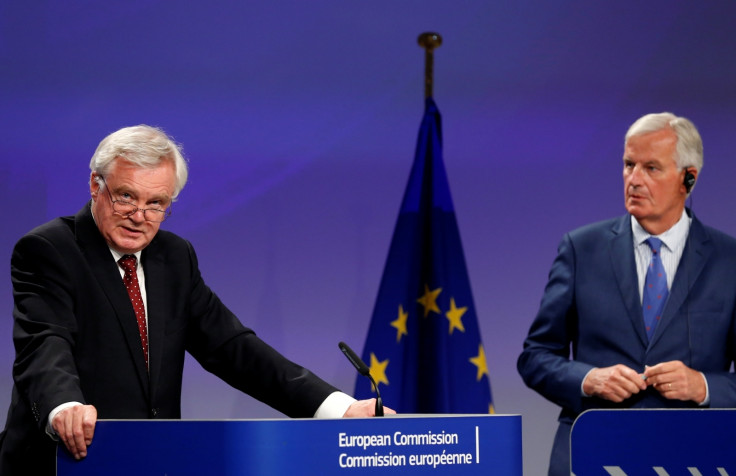Michel Barnier rules out special Brexit deal for the City
EU's chief Brexit negotiator argues Britain cannot have bespoke trade deal once it leaves the bloc.
The City of London will not be granted preferential treatment once Britain leaves the European Union, the bloc's chief Brexit negotiator has stated.
In an interview with the Guardian, Michel Barnier said it was inevitable British banks and financial services firms would lose passporting rights once the UK leaves the single market.
The European banking passport system allows banks and other financial institutions authorised to operate in an EU country, or a member state of the European Economic Area (EEA), to conduct business across the union.
"There is no place [for financial services]," Barnier insisted. "There is not a single trade agreement that is open to financial services. It doesn't exist."
Barnier added the outcome was the result of "the red lines that the British have chosen themselves. In leaving the single market, they lose the financial services passport".
The news is a major blow for Prime Minister Theresa May, who had hoped to secure a bespoke trade arrangement with the bloc and also dashes David Davis' hopes of clinching a unique trade deal that would include financial service.
Over the weekend, the Brexit secretary suggested Britain would look to strike a "Canada plus plus plus" deal with the EU, referencing the free trade agreement the Canadian government and the EU reached last year.
Barnier also added Britain and Brussels could agree a trade deal within a two-year transition period, although 35 national and regional parliaments would still have to ratify it. Additionally, Britain will still have to comply with EU rules and regulations during the transition period and the UK could not stop Brexit unilaterally, as support from the 27 member states would be required to halt the process.
"The same rules for everyone – this is the spirit of the transition," he said. "It will be essentially the economic status quo."

Britain could use the transition period to negotiate trade agreements with the rest of the world, although it would not be allowed to implement them until the end of the two-year transition window.
"We have already had contacts with third countries and they want to know what will be the nature of the relationship between the EU and the UK," Barnier added.
Last week, EU leaders agreed to move onto post-Brexit trade talks following months of negotiations, after the president of the EU council, Donald Tusk, confirmed that talks "can move to the next stage".
The past few months have seen tense talks over the future of EU citizens, the size of the divorce bill as well as the Irish border, these were a pre-requisite for discussions to begin on trade.
The next phase will focus on the long-term relationship between Britain and the EU.
One of the first issues that will be discussed, possibly before the end of 2017, will be the terms of the transition period that will come into place from March 2019 when Britain officially exits the EU.
Official guidelines for the next phase of talks state that initial drafts were expected in January on how the trade discussions would evolve.
They also confirm that the UK will be leaving both the single market and the customs union, an area that still causes divisions in Westminster.






















